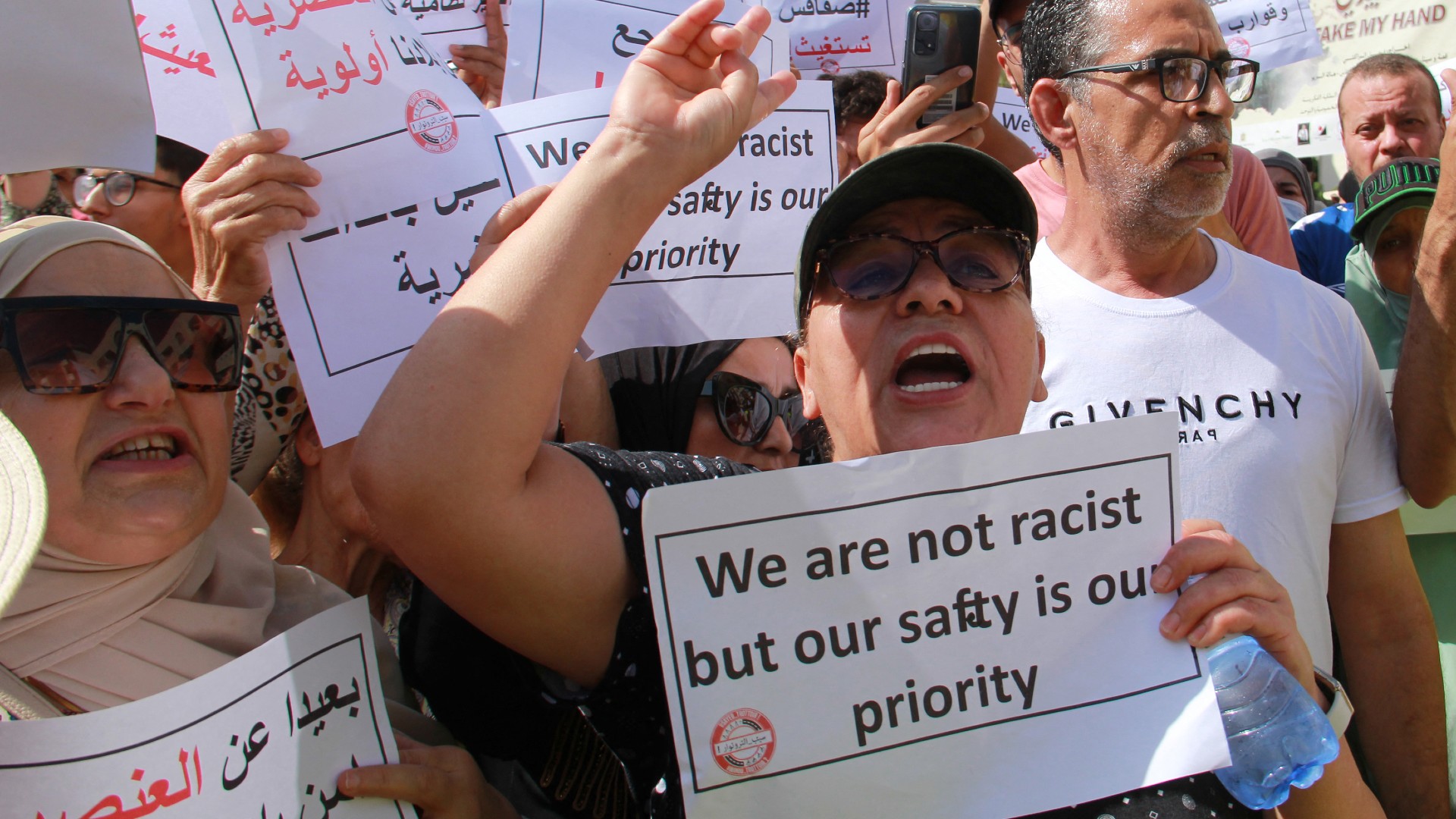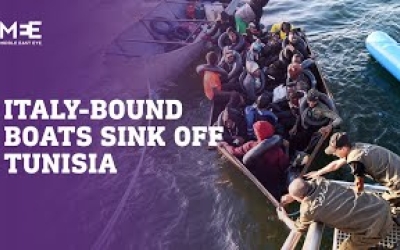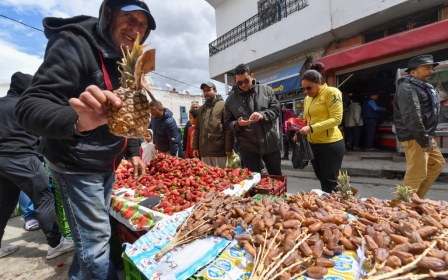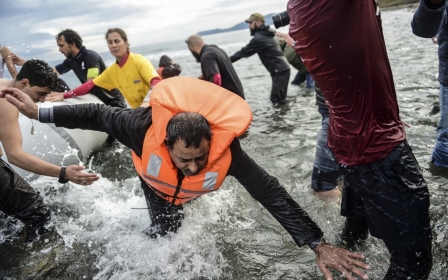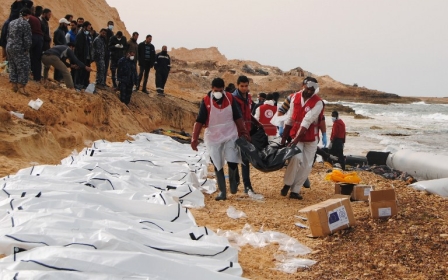How EU policies have turned Tunisia into Africa's graveyard
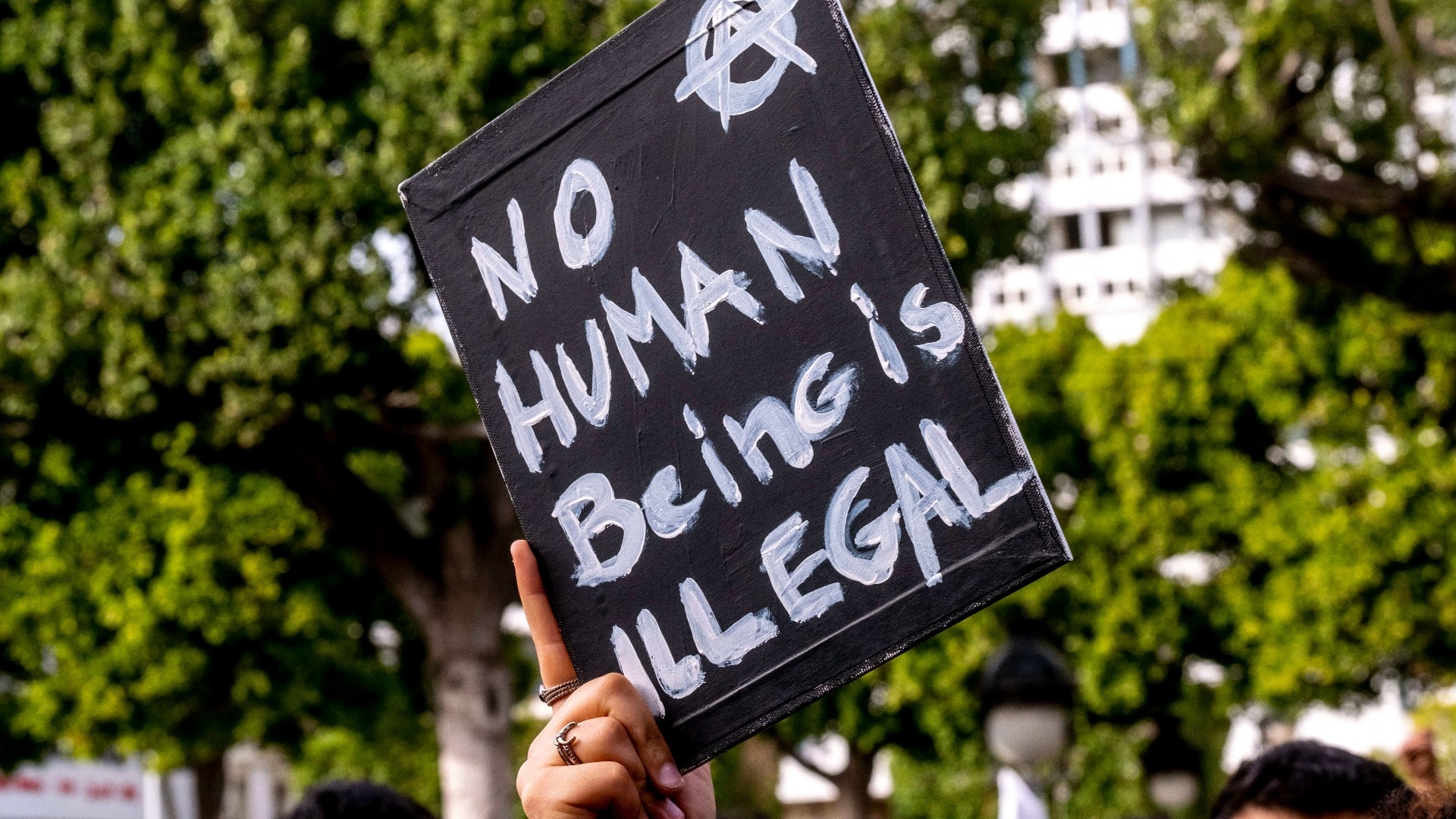
A mother and baby, along with several young men and children, left the shores of Zarzis, Tunisia, in a small fishing boat last September. But they never reached Europe; like many others before them, their hopes and dreams turned into tragedy.
For years, local fishermen have come across the remains of sub-Saharan and North African migrants. In one case, a young girl’s lifeless body that had been adrift for days was identified by her engraved bracelet.
Two cemeteries, dubbed Africa’s Garden and the Cemetery of the Unknown, have been established in Zarzis to offer a resting place for unidentified bodies recovered from the Mediterranean Sea.
Social anthropologist and migration researcher Ahmed Jemaa told me that many Tunisian irregular migrants are individuals whose visa applications have been rejected: “They don’t always choose to migrate on fishing boats. But the visa procedures leave them with no options.”
During my own fieldwork in southern Tunisia last year, I spoke with many youths and their families. Some of their relatives had reached Europe on boats, while others were still waiting. “Why would I stay here? Look at the town … it’s empty, all the youth have gone,” one of them told me.
New MEE newsletter: Jerusalem Dispatch
Sign up to get the latest insights and analysis on Israel-Palestine, alongside Turkey Unpacked and other MEE newsletters
Sociologist Khaled Tababi, who specialises in migration, told me that for the European Union, “mobility is a privilege and not a right. Borders for the EU are a classificatory tool; they use them to classify and exclude people, and this has been the case since the 1990s.”
Tunisia and the EU have long been working on the migration issue. Last month, Giorgia Meloni, Italy’s far-right prime minister, was received by Tunisian President Kais Saied in Tunis. They discussed Tunisia’s blocked International Monetary Fund deal, and Meloni vowed to support priority sectors in Tunisia.
'Securing' European borders
A subsequent meeting among Meloni, Saied, Dutch Prime Minister Mark Rutte and European Commission President Ursula von der Leyen stressed five “pillars’’ of cooperation with Tunisia: economic development, investment, energy, migration and “people-to-people contacts”. More than $1bn in financial aid could potentially be mobilised, von der Leyen said.
But it is clear that for the EU, the economic picture is secondary to its primary objective of “securing” European borders and curbing the influx of irregular migrants from North Africa.
Saied, meanwhile, has declared that Tunisia will not be Europe’s border guard. All of this suggests that the current political and socioeconomic situation in Tunisia defies any simple or classical resolution.
Neither the Tunisian state nor the EU seems willing to move beyond treating migration as a security issue
Of the promised partnership between Tunisia and the EU, Tababi noted: “This rhetoric is old. Any partnership with the EU will be an unequal one. And for the EU, it is all about turning Tunisia into its police border, or at best turning it into a safe third country.”
The Tunisian Forum for Economic and Social Rights has said on multiple occasions that Tunisia is neither logistically nor judicially qualified to be a safe third country. Amid this backdrop, hate speech and xenophobia towards sub-Saharan migrants has been growing in Tunisia, fuelled by the EU’s policies and discourse on migrants.
On Wednesday, Tunisian security forces expelled hundreds of Black African people from Sfax to the border region with Libya, according to rights groups.
In recent weeks, Tunisians in Sfax have held protests against the presence of refugees. The coastal city is a key access point to Europe for many people attempting to cross the Mediterranean.
Earlier this year, the problem was exacerbated as the fledgling Tunisian Nationalist Party initiated a campaign to expel irregular migrants, warning that sub-Saharan colonisation was threatening the Tunisian state.
Flawed approach
The growing anti-migration rhetoric has translated into violent assaults on Black African migrants in Tunisia. The state’s position, which holds that migration is a threat to the country’s demography, has further aggravated the situation.
Black African migrants have reportedly been subjected to arbitrary evictions by Tunisian landlords. Some Black Tunisians, mistakenly identified as sub-Saharan migrants, have been verbally attacked in the streets.
Earlier this year, Saied warned of “hordes of irregular migrants” in the country, pointing to what he called “a criminal plan since the beginning of the century to change the demographic structure of Tunisia”, and urging strict measures to tackle the issue. Tunisian activists, civil society groups and international organisations, including the World Bank, denounced his comments.
At this point, neither the Tunisian state nor the EU seems willing to move beyond treating migration as a security issue. Their approaches remain firmly rooted in the notions of externalisation and securitisation, leaving behind major concerns about freedom of movement and visa policies.
The experts with whom I spoke agreed that the EU’s approach vis-a-vis Tunisia amounted to a form of economic and political “blackmail”. Taking advantage of Tunisia’s economic hardships, and propelled by a far-right, ambitious leader such as Meloni, the EU’s main objective is to impose stricter border controls.
All the rhetoric about cooperation, partnership and financial aid is secondary. What Meloni and her European partners want is fewer migrants - even if this means more tragedies on the shores of Zarzis.
The views expressed in this article belong to the author and do not necessarily reflect the editorial policy of Middle East Eye.
This article is available in French on Middle East Eye French edition.
Middle East Eye delivers independent and unrivalled coverage and analysis of the Middle East, North Africa and beyond. To learn more about republishing this content and the associated fees, please fill out this form. More about MEE can be found here.



